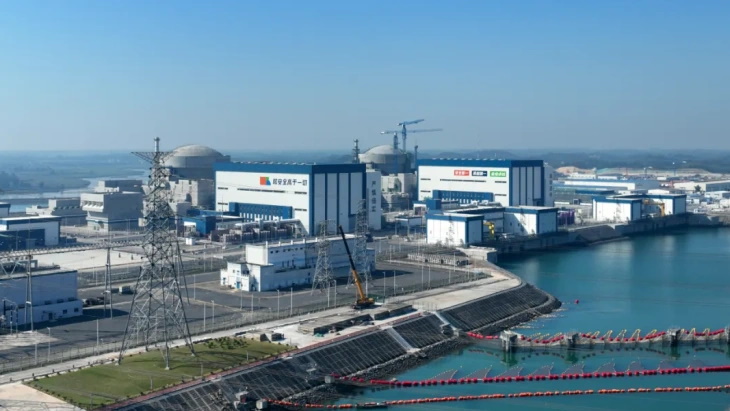
The company said the 1180 MWe (gross) pressurised water reactor was successfully connected to the grid at 8.29pm on 9 April, "marking that the unit has the power generation capability and has taken another key step towards the goal of commercial operation".
CGN noted that a series of subsequent tests will be carried out to further verify the various performances of the unit with commercial operating conditions. It said the reactor is expected to be put into "high-quality production" in the first half of this year.
First concrete was poured for the nuclear island of Fangchenggang unit 3 - 39% owned by Guangxi Investment Group and 61% by CGN - in December 2015, while that for unit 4 was poured a year later. Unit 3 was originally expected to start up in 2019, with unit 4 scheduled to start up in 2020. Both their start-ups were subsequently postponed until 2022.
However, in January 2022, CGN announced that the start-up of Fangchenggang 3 and 4 had been put back again due to delays caused by the COVID-19 pandemic. Unit 3 achieved first criticality - a sustained chain reaction - on 27 December 2022 and was synchronised with the grid on 10 January 2023. It entered commercial operation on 25 March.
China's National Nuclear Safety Administration (NNSA) granted CGN an operating licence for Fangchenggang 4 on 27 February, allowing the loading of fuel into the reactor's core to begin. The fuel loading process was completed on 2 March. The reactor reached first criticality on 3 April.
The Fangchenggang plant is planned to house six reactors. The first phase comprises two CPR-1000 units which were put into commercial operation in 2016. Units 5 and 6 are expected to feature Hualong One reactors.
The first two units of China National Nuclear Corporation's version of the Hualong One design at the Fuqing plant in Fujian province have both already started up. Unit 5 entered commercial operation on 30 January 2021, with unit 6 following on 25 March 2022.